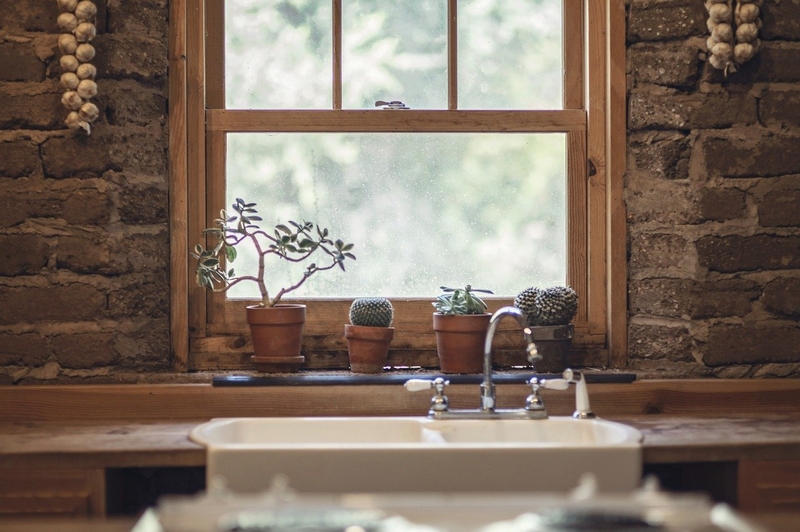Kitchen cleaning can be one of the most unpleasant chores to do, and one that everyone seems to put off as long as possible. Fortunately, there are plenty of great kitchen cleaning tips you can use that make the job much easier and less unpleasant to do so you’ll have more time to enjoy your kitchen cleanliness! The following are ten great tips for kitchen cleaning that will make the job much more pleasant and easy to accomplish.

1) Remove objects from the sink
This is an important kitchen cleaning tip because it will help you to save a lot of time and energy. Think about it, if you have a sink full of dishes, pots, pans, and utensils, it’s going to take you much longer to clean everything in there. If you remove these items first and put them aside, on a drying rack or top of your countertops, then cleaning up will be much easier. This is especially true when it comes to things like dishware that cannot be submerged in water; instead of rinsing them under running water (which can easily lead to getting water into other items), just pop them out of your sink.
2) Use disinfectant wipes
Because kitchen sponges can harbor all sorts of germs and bacteria, using a disinfectant wipe on them is a great way to get your kitchen clean without having to use soapy water and additional cleaning solutions. This can help you easily keep your kitchen clean without spending hours in the cleanup. Disinfectant wipes are an easy option when it comes to kitchen hygiene because they kill off 99% of harmful bacteria and viruses that might be living in or around your kitchen. If you don’t want to use something too abrasive, these wipes are especially useful at helping eliminate grease buildup that might be present on cookware or food preparation areas. They’re also effective at removing stains from countertops, cutting boards, and dishes.
3) Keep your sponge clean
Always wash sponges in hot, soapy water between uses. It might sound excessive, but if you want to keep your kitchen clean and healthy, it’s important to do so. Experts recommend replacing your sponge every week because it tends to harbor germs, food residue, and soap scum. By washing regularly, you can prevent bacteria from building up in your sponge and spreading around your kitchen. If you have a dishwasher, make sure to place your dirty sponge into an airtight container before loading dishes. If not, make sure to store away in a dry place, like a small bin or plastic container. When left damp overnight, sponges have been known to grow mold and other nasty contaminants.
4) Add essential oils to soap dispensers
Soap dispensers are a popular addition to kitchens for good reason. It’s easy to wash your hands of grease and grime with an automatic soap dispenser, particularly in busy kitchens. But kitchen soap dispensers can get grimy themselves, which only spreads bacteria around your kitchen. An easy solution? Add a few drops of essential oil such as peppermint or eucalyptus to your dispenser along with some dish soap before filling it up. The oil acts as a natural antibacterial agent that keeps your kitchen smelling great and prevents germs from breeding in your soap dispenser.
5) Don’t leave dirty dishes in the sink
The sink is where dirty dishes go. If you leave them in there, it’s harder to get back to your cooking or eating habits. When you finish eating or cooking, do a quick wash up to make room for your next meal or snack. The less time that goes by between using dirty dishes and cleaning them, the easier it will be to keep things clean and tidy in your kitchen. Remember, if you notice something stinky or icky in your kitchen, immediately disinfect it so bugs don’t find their way into an otherwise clean environment.
6) Clean wooden kitchen cabinets with sandpaper
You may not think of sandpaper when it comes to kitchen cleaning, but it can be used on wooden cabinets to remove dried-on stains. All you need is some fine-grain sandpaper, a piece of cloth, and your choice of solvent. Gently rub the sandpaper over discolored areas in a circular motion until they’re clean. Then polish with a soft cotton cloth to bring outshine. This can also be done using steel wool instead of sandpaper, which will save money.
Conclusion
The kitchen is one of those places where we often forget about cleaning because it is used every day. Kitchens can be some of the dirtiest rooms in a home due to daily contact with uncooked food and other items. If you want to keep your kitchen as clean as possible, it’s important to adhere to some basic rules of kitchen hygiene and develop a regular cleaning routine.